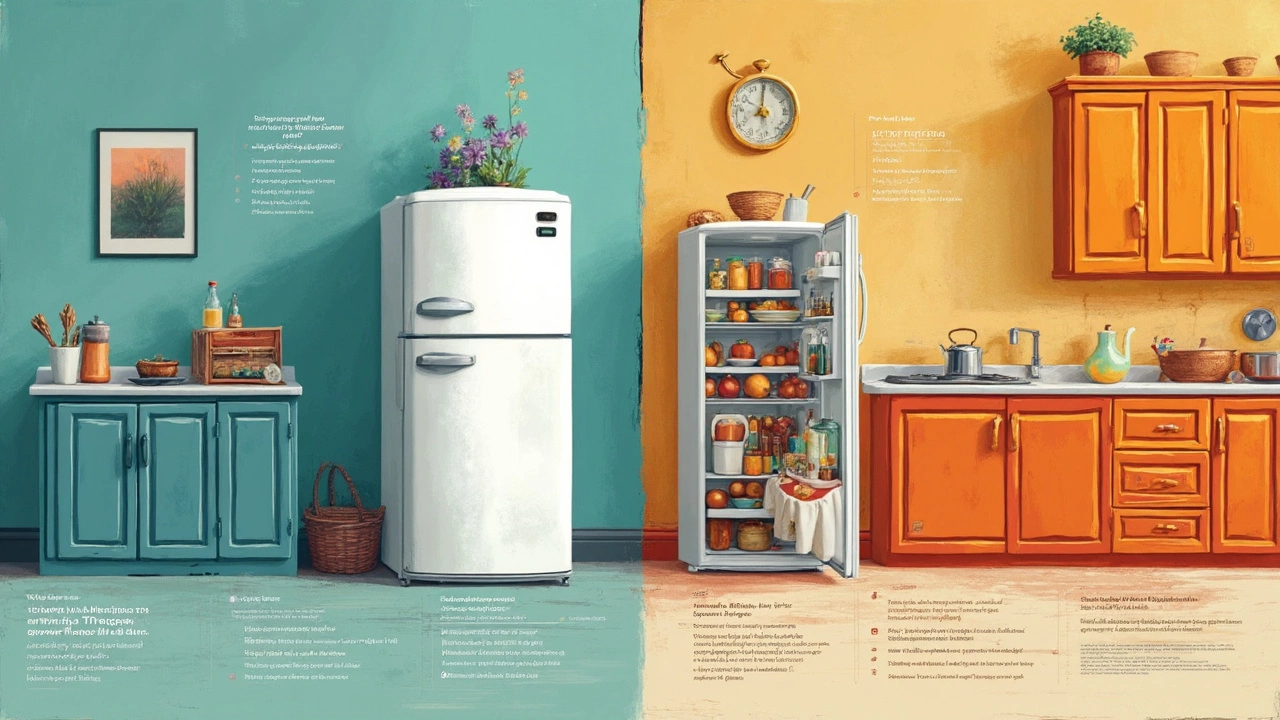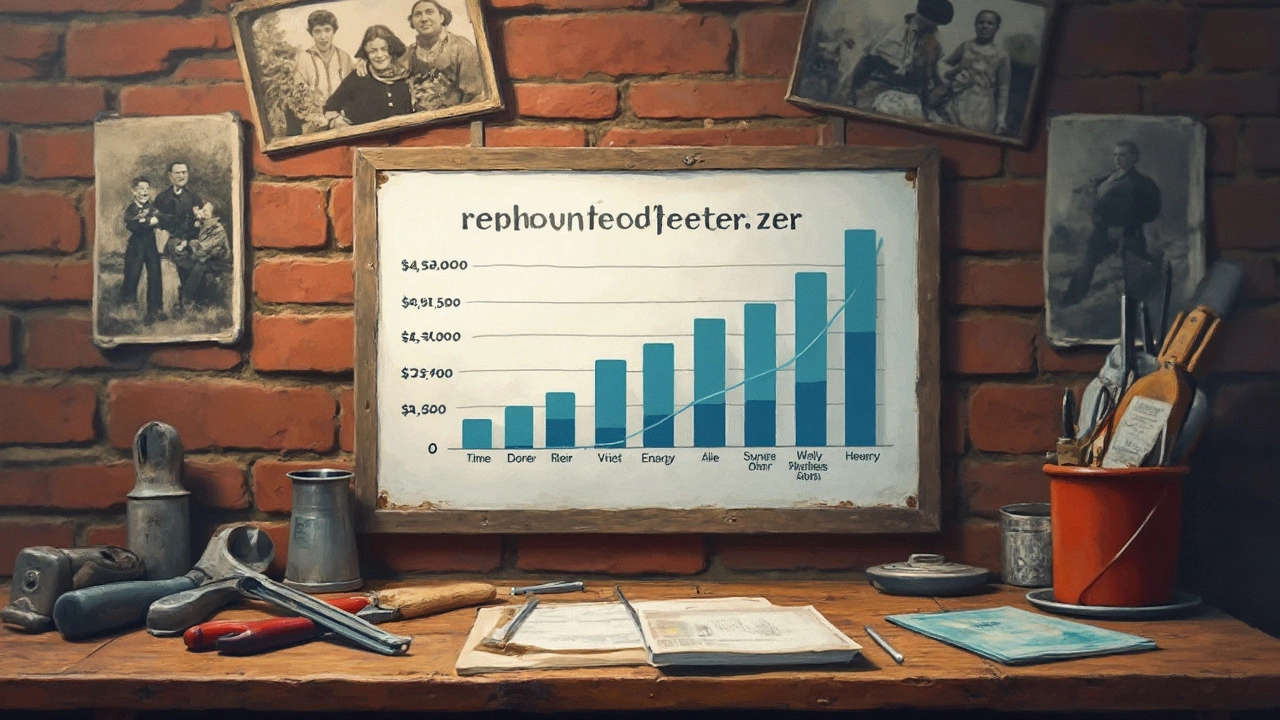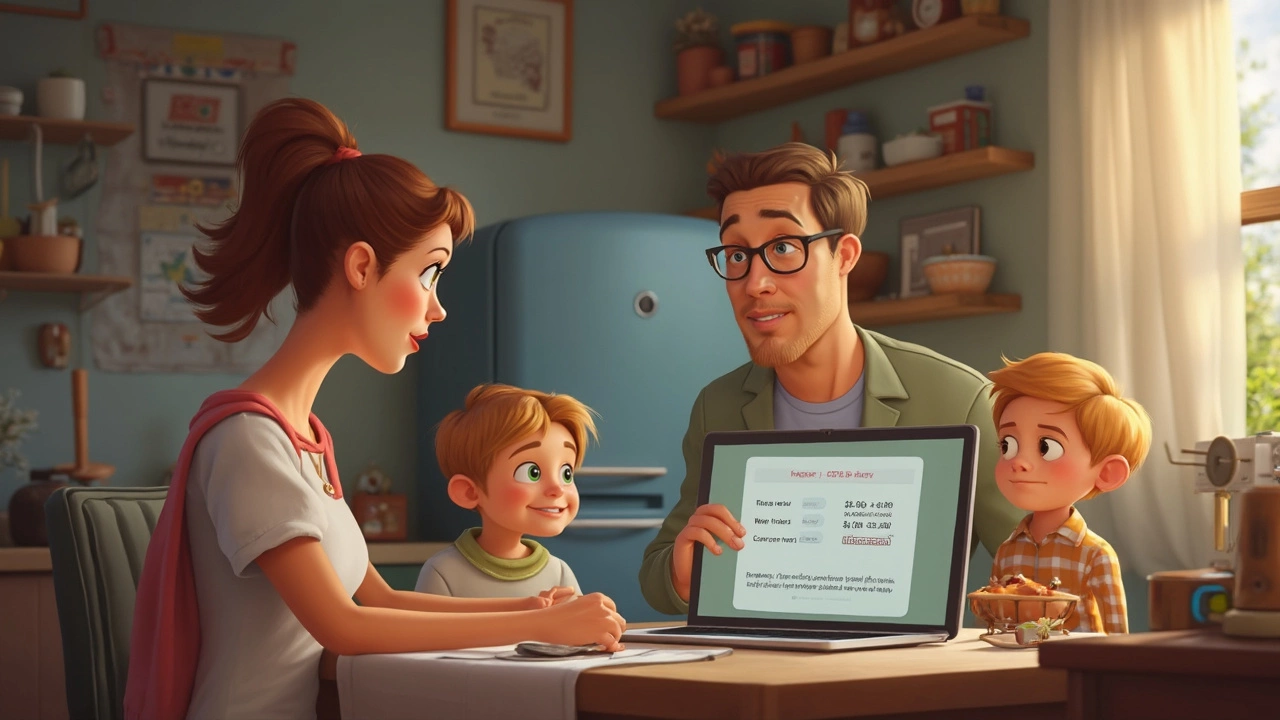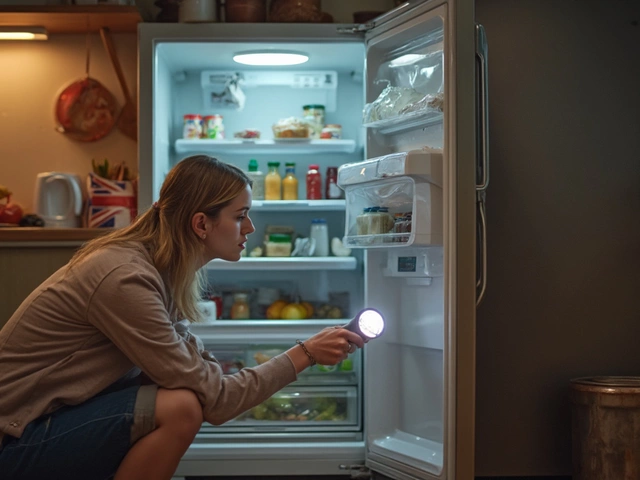Ever opened your freezer and wondered if that weird noise means it's time to call in a repairman or just find a new one? You’re not alone. Deciding between fixing and replacing is never easy, especially when your trusty freezer acts up.
The first step is recognizing when something's wrong. Is it going on the fritz more often than you'd like, or are you noticing a hike in your electric bill? These are classic signs that demand attention. But before you take any action, weighing the repair costs against buying something brand new is key.
Usually, if your freezer is stumbling after six or seven years, it might just be edging toward retirement. But hey, many other factors are at play too, like how energy-efficient your current model is. Sometimes, those newer models save you money in the long haul by cutting energy use, even if they cost a bit more upfront.
- Signs Your Freezer Needs Attention
- Cost Analysis: Repair vs. Replacement
- The Age Factor: How Old is Your Freezer?
- Energy Efficiency Matters
- Environmental Impact and Future Considerations
Signs Your Freezer Needs Attention
Your freezer is like your car’s reliable old engine—until it starts sputtering. But how do you really know when it’s time for a check-up? Spotting early signs can save you a headache later on and maybe even some cash.
Firstly, keep an ear out for strange noises. It shouldn’t sound like a dying robot. Odd clanking, buzzing, or clicking sounds can signal that it’s struggling.
Next, if you notice water pooling around your freezer, that's a big red flag. Leaks could indicate issues with the door seal or drainage, which mean it's time to repair, not ignore.
A big clue is how cold it feels inside. If your ice cream is more like a milkshake or you see frost building up like the North Pole, your freezer's thermostat might be malfunctioning.
Finally, take a look at your energy bills. A sudden increase might mean your appliance is working overtime, which isn't a good sign. These sneaky energy spikes can illuminate hidden problems you need to solve fast.
- Weird noises
- Water leaks
- Ineffective cooling
- Excessive frost
- Unexplained high energy bills
Paying attention to these subtle hints can help you decide if you need a quick fix or something more. Ignoring these signs might lead to costlier repairs or a forced replacement.
Cost Analysis: Repair vs. Replacement
So, your freezer's acting up, and you're stuck choosing between a repair or just chucking it and buying a new one. It's not just about the price tag—it's about making a smart decision that fits your wallet and needs.
Let's talk numbers. Generally, minor freezer repairs like fixing a door seal or replacing a thermostat won't break the bank. You might expect something like $100 to $300, which sounds decent, right? But if the motor’s down or the compressor's fried, costs can shoot up to $700 or more.
Now, balance those costs with what you’d pay for a new freezer. On average, a brand-new shiny one can set you back around $800 to $1,500, depending on size and features. But wait, there's more to consider! The age of your current freezer matters. If it’s older than 10 years, it might be guzzling electricity, driving up your bills, and a newer model could save you cash over time.
Here's a handy tip: the 50% rule. If the repair costs are more than 50% of the price of a new freezer, it probably makes more sense to replace. Plus, keep an eye on repair frequency. If you’re calling the handyman more than once a year, that freezer might just be a money pit.
Here’s another thing to chew on: new models might cost more upfront but save you in the long run with better energy efficiency. Energy Star-rated freezers use about 10-15% less energy, helping you pinch a few extra pennies every month.
| Repair Type | Approximate Cost |
|---|---|
| Minor Repairs | $100 - $300 |
| Major Repairs (Motor/Compressor) | $700+ |
All these numbers might feel overwhelming, but weighing them up can steer you toward the most economical choice for your specific situation. After all, nobody wants their decisions to freeze up their budget!

The Age Factor: How Old is Your Freezer?
When trying to figure out whether to repair or replace your freezer, age is a biggie. Generally speaking, most freezers last about 10 to 15 years. If yours is creeping up to those double digits, it might be time to consider an upgrade rather than a repair.
Here’s a good rule of thumb: If your freezer is more than ten years old and needs a repair that’s more than half the cost of a new one, replacing it is usually the smarter move. Why? Because older models tend to be less energy-efficient, costing more in monthly bills over time.
Let’s put it into perspective with a quick rundown:
| Age of Freezer | Recommended Action |
|---|---|
| 0-5 Years | Most likely worth repairing |
| 6-10 Years | Consider repair costs but keep replacement in mind |
| 11+ Years | Replacement is generally the wiser choice |
It’s also worth mentioning how technology leaps forward. Newer freezers come packed with features that save energy and money, like better insulation and compressors working efficiently. Sure, a repair might seem like the cheaper route in the short term, but investing in a model that consumes less power isn't just good for your wallet—it's good for the planet too.
So, take a good hard look at your freezer’s birth certificate if you can find it. If not, a serial number search online or a quick call to the manufacturer might help you determine the age. Knowing just how old your freezer is can guide you in making a decision that stings a little less.
Energy Efficiency Matters
When it comes to deciding whether to repair or replace your freezer, paying attention to energy efficiency can literally save you some bucks. Freezers are no longer the energy hogs they used to be. Thanks to technological advances, modern models can be up to 10-25% more efficient than those made just a decade ago.
Imagine this: an older freezer might consume as much as 1000 kWh per year, while a new energy-efficient unit could cut that down to about 800 kWh or even less. If you're paying around $0.13 per kWh, that’s a potential savings of over $25 a year. Doesn’t sound like a big deal? Well, add that up over the years, and it might just pay for itself.
| Age of Freezer | Estimated Energy Consumption (kWh/yr) |
|---|---|
| 10+ years | 1000+ |
| 5-10 years | 800-1000 |
| New Models | 600-800 |
Another factor to think about is the Environmental Protection Agency’s (EPA) Energy Star program. Products with this label are designed with efficiency in mind, reducing not just your costs but also your environmental footprint. So, if you’re considering a new freezer, look for that label and compare energy guides.
Of course, nothing’s set in stone. Depending on how often your freezer runs and your specific utility rates, your savings might vary. But if you’re thinking long term, making the switch to a more efficient model could be a smart move—both for your wallet and the planet.

Environmental Impact and Future Considerations
Thinking about the environment isn't just a trend; it's a necessary shift in how we live. When deciding whether to repair or replace your freezer, it's worth considering what impact your choice has on the planet. Let's talk about what's at stake.
First up, older freezers usually hog more electricity. Those old models can be real energy vampires, making your utility bills soar while leaving a hefty carbon footprint. Investing in a newer, energy-efficient freezer can significantly cut down your energy use. In fact, many new models are at least 20% more efficient than ones made a decade ago. You could be doing your part in reducing emissions, one freezer at a time.
Then there's the matter of disposal. Simply tossing your old freezer isn't as simple as curbside pickup. Freezers contain refrigerants, like CFCs or HFCs, which are harmful to the environment. Proper disposal is crucial. If you're leaning toward replacement, make sure the recycling center or the store offers eco-friendly disposal services. Many places now offer pickup and safe recycling, ensuring these harmful substances are dealt with properly.
Let’s also consider future considerations. How long are you planning on staying in your current home? If it's just temporary, opting for a repair might make more sense financially and environmentally, rather than investing in a new machine that has to move with you. On the other hand, if you're settled, a more sustainable freezer could save you money and reduce your carbon footprint over time.
With so many newer models designed to be kinder to the environment and lighter on the wallet in the long haul, replacing can actually be the greener choice despite the initial cost. Plus, some governments offer rebates for upgrading to energy-efficient appliances. It's definitely something worth checking out, as it can soften the blow to your bank account.
Weighing all these factors ensures that your decision is not just good for you but also for Mother Earth. So, next time your freezer's acting up, remember there's more to consider than just cost. Your choice affects the bigger picture, too.




